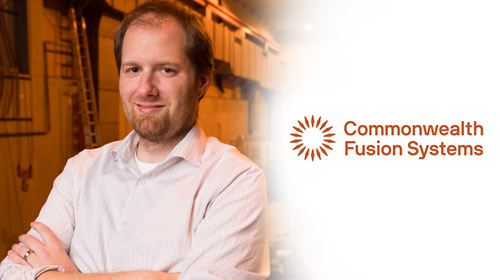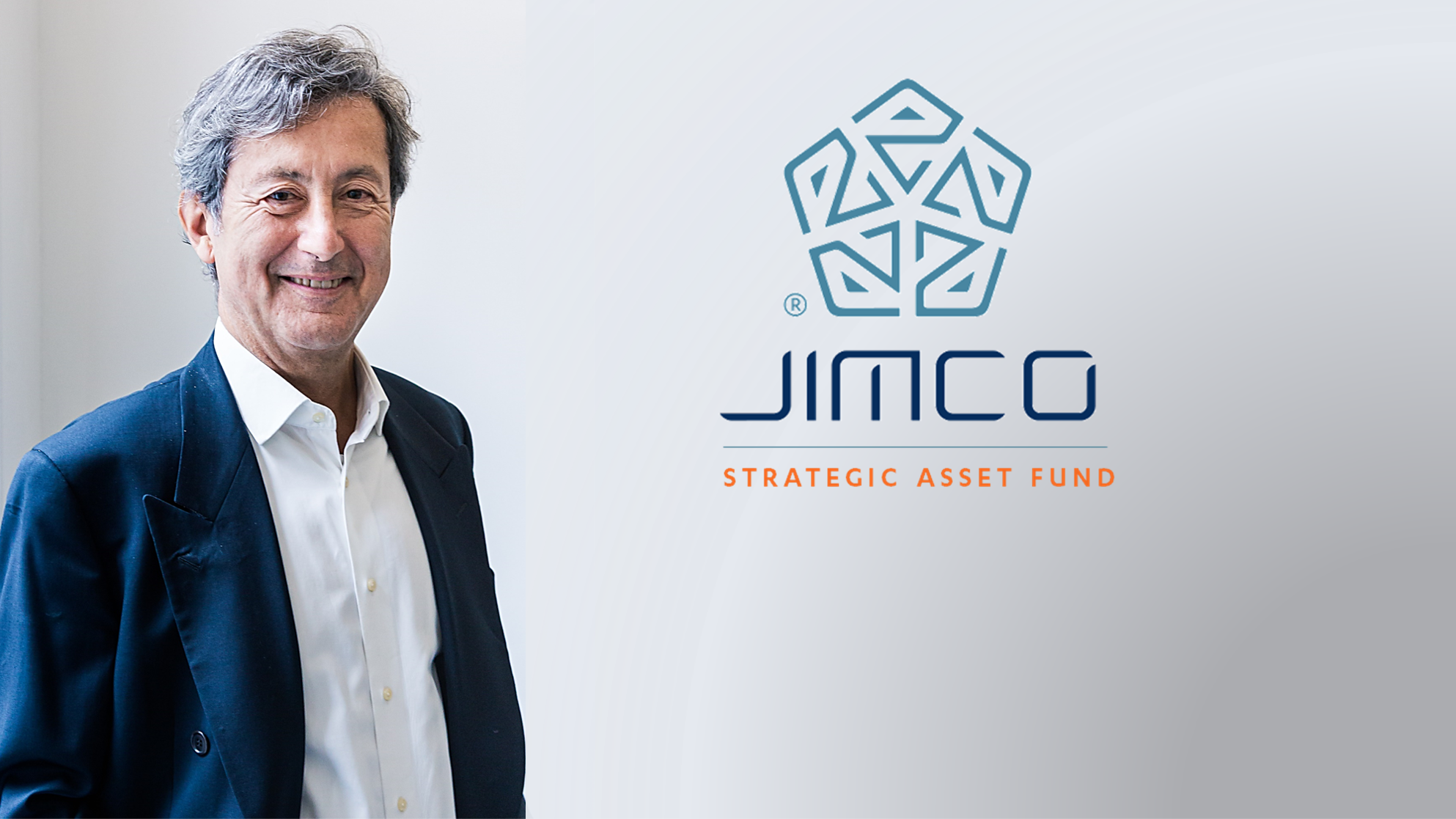A Q&A with Onur Aydin, Managing Director, JIMCO Technology Fund
It has been almost two years since the Jameel Family consolidated its non-operations investment activities under a new, dedicated investment brand: the Abdul Latif Jameel Investment Management Company, or JIMCO.
Although the Jameel Family have been investing in emerging businesses for many years, as far back as Atari in the early 1980s and, more recently, mobility innovators RIVIAN and Joby Aviation, JIMCO is separate from both the commercial operations of the Abdul Latif Jameel businesses and the Jameel Philanthropies, which include Bab Rizq Jameel, Community Jameel Saudi, Art Jameel and Community Jameel.
It has a global reach from the Americas to Asia Pacific, with three primary fund vehicles focusing on three different sectors: Life Sciences, Technology and Strategic Asset investments. Together, these funds are actively investing in innovation, early-stage ventures and emerging technologies, with the ambition of advancing the future of core industries, driving the global economy and contributing towards a more inclusive society.
Since its foundation, JIMCO has quickly made its presence felt in its chosen markets. The Life Sciences fund has made a number of landmark investments in emerging healthtech pioneers that are changing the face of healthcare across the world, such as Cellarity, Evelo Biosciences, EQRx and Laronde. The Strategic Asset fund continues to pursue responsible investment opportunities that back promising, forward-thinking fund managers with clear, sustainable and long-term visions. And the JIMCO Technology Fund is investing in various exciting technologies with the potential to disrupt traditional ways of working, including RIVIAN, Joby Aviation, Tabby, Lean and Rain.
As the funds continue to grow their activities and develop their portfolios, we spoke to Onur Aydin, Managing Director of the JIMCO Technology Fund, about the background to JIMCO, his vision for the fund and his hopes for the future.
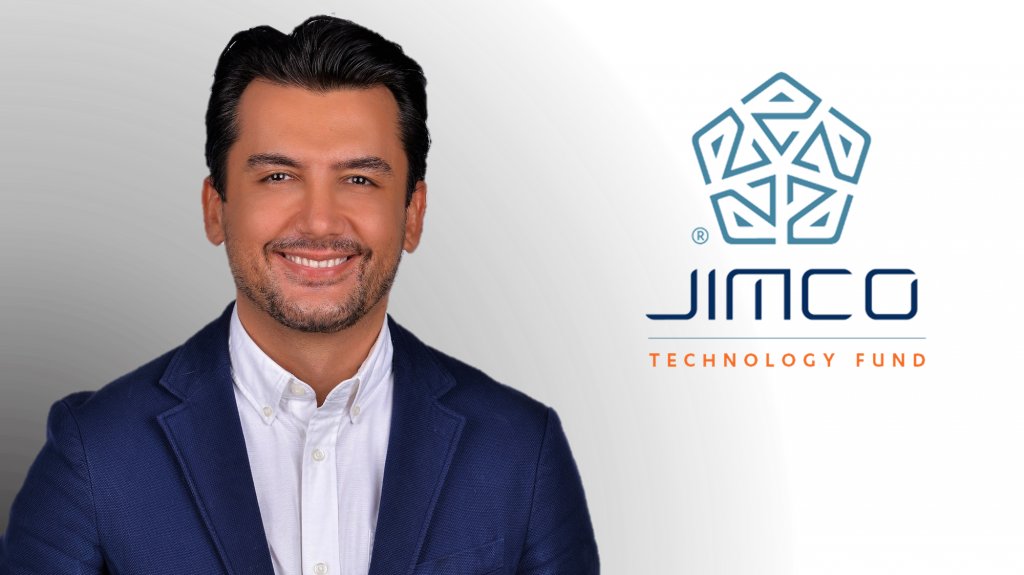
Q: What is the JIMCO Technology Fund and what are its aims?
We are trying to invest in the disruptive technologies of the future; technologies that are completely changing the face of industries globally or regionally in the Middle East and Turkey. We aim to work with ambitious founders with ground-breaking ideas that will not only provide financial return, but also deliver wider benefits for humanity.
The Jameel Family have been involved in philanthropy and investing on a global scale for many years. JIMCO is another tool in their endeavor to change the world for the better.
Q: When did you first get involved with the Technology Fund?
I first worked for Abdul Latif Jameel in my twenties in Saudi Arabia, and then for Toyota in Australia. I left to do an MBA at Harvard Business School, but returned in 2018, after many years spent in strategy consulting, start-ups and digital investments, to help drive the business’s corporate digital transformation strategy. After creating a digital transformation plan in place for the core business, next I got involved in the external investment side, specifically around technology investment. Most incumbents fail to understand disruption and only invest in core digital transformation. Given my experience in digital technology and my knowledge of some of the exciting things that were going on in the sector, I strongly believed that we could do both: invest in the core and also in the disruptive technologies of the future. After some internal discussion and alignment, this became the basis of the JIMCO Technology Fund.
Q: What attracted you to the opportunity?
One of the main attractions was the opportunity to build JIMCO and use the capital to make a difference, reflecting the Jameel Family’s long-standing commitment to sustainability-related investment. JIMCO is not only about making profits, it is also more about improving society and driving progress, particularly in key sectors like renewable energy, fintech, food-tech, mobility and healthcare. I saw that we have opportunity to build something over the next 10 or 20 years that can be a really positive agent of change in the world.
I also love working with entrepreneurs and innovators. People who are talented, hard-working and determined to make their idea work. It’s very exciting and hugely satisfying, to work alongside them, learn from them and support them in their ambitions. Founders do the work; we are here to assist them.
Q: What sectors is the Technology Fund focused on?
Our primary areas of focus are fintech; mobility and transportation; and software. We also focus on energy and water-tech, food-tech, agri-tech and consumer tech.
Though we have our focus areas, we will study anything disruptive that it is trying to address a huge world problem or consumer need-even though sometimes it is not apparent. Like Airbnb or Uber back in the day.
These can be hard to identify, so we try to keep an open mind and look out for early signs that an industry or sector is being disrupted. It usually happens when the incumbent players in an industry enjoy huge margins or not addressing the market in an efficient manner, which leaves the door open to a disruptor to come along and do things differently.
So, we try to keep an eye on industries where we think disruption is imminent.
Q: How do the objectives of the Technology Fund reflect the broader focus of the Jameel Family on making a positive difference?
If you look at the areas we focus on, like fintech, mobility, energy, food-tech, they’re all areas that have fundamental problems and opportunities on a global scale. For example, energy, it’s common knowledge that our world is faced with a serious threat and we need to reduce our greenhouse gas emissions and achieve net zero by 2050. So, we look for technologies that will help to achieve that goal.
If we take food tech, we’re looking at innovations that can help to reduce the carbon footprint of food production or agriculture or improve the efficiency of systems that support them. As for fintech, millions of people around the world are still financially excluded; they don’t have access to the same knowledge, services, or products that many of us take for granted. So, in this area, we focus on products that can disrupt the current system to make it more accessible and cheaper to people who might otherwise be excluded.
Q: Do you focus on particular geographic markets?
Across the Middle East, North Africa and Turkey (or MENAT) region – our historical back yard you might say, the JIMCO Technology Fund has been most active – so far at least – in directly investing into start-ups, particularly in fintech. We have a keen focus on financial inclusion and this area is thriving across MENAT. In North America, Europe and Asia, we have direct technology investments too – such as mobility innovator, Joby Aviation – and alongside this we also invest indirectly through the top technology VC funds which tend primarily to be based in these regions.
Q: In terms of investing in other funds, what kinds of funds do you invest in?
Basically, we try to invest in funds that think like us and perform well; funds that are focused on the same spaces in terms of their own direct investments. We want to invest in independent thinkers; fund managers who really know their sectors and have a crystal-clear, informed views about what’s happening and how the market will change over the next 10 to 20 years. Because if you think like everybody else, you’ll just make the same returns as everybody else. At the same time, we want to give a chance to more nascent funds, maybe second-time funds, driven by people who may have a different perspective on markets and upcoming technologies.
Q: How do you identify potential investments and how do you verify they match your broader criteria for investing?
For investing in funds, it’s easier because there is an existing track record and performance to look at. For direct investments it is harder. We take our time to get it right and review all the information that is available. As well as the market focus and size, one of our key criteria is the team behind the business. So, we talk to the founders and other top managers try to develop an understanding of who they are, their vision and their values. What drives them? What are they hoping to achieve? What kind of people are they?
We don’t mind missing a purely financial opportunity if the investment doesn’t meet our priorities, in terms of the vision for the business or its approach to ESG (environment, social and governance) factors, for example. We want to make investments we can be proud of in the long term.
To identify potential investments, we use all sorts of tools to research possible targets. We also have a dedicated research team that does research and is plugged into the relevant communications channels and networks. Another avenue is referrals. We have built – and are continually building – strong networks in the areas we are interested in. We also attend events and conferences, travel restrictions permitting, to meet people and develop contacts. And we build links with universities and innovation hubs around the world. Similar to the Jameel Family’s partnership with MIT and Imperial College London, JIMCO has close relationships with the top minds across top universities around the world and we get to see incredible innovations right from the start. These can be very useful ways to keep in touch with what is happening and find out about exciting ideas and new start-ups.
Q: How do you ‘sell’ JIMCO to potential investment targets, particularly if other investors are also interested?
It depends on the market. In the Middle East, the first thing we have is the strength and credibility of the Abdul Latif Jameel name. It is a very well established and highly respected business right across the region. In addition, the JIMCO Technology Fund already has a solid track record and a strong portfolio of investments in start-ups like Tabby, Lean and Rain. These businesses are growing very strongly and already add a lot of credibility to our investment proposition.
Our regional and global coverage is also an advantage. We can help businesses to expand in other markets where we already have operations, whether it is elsewhere in the Middle East or further afield. Most ambitious start-ups are looking for more than financial support; they want operational and strategic support, too, and we can provide that.
In other regions like the US and Europe, we have a strong track record to point to, with investments like RIVIAN and Joby Aviation, but there are a plethora of opportunities so we have to know what we are looking for and have the discipline to say no.
Luckily, we the investment team and the Jameel Family are very clear about the type of breakthrough investments we want to invest in, that makes our job easier and narrows the list of companies we have to approach and discuss how we can add value. Given our extensive experience in mobility, that is one area we get to be invited into investing in the most promising startups.
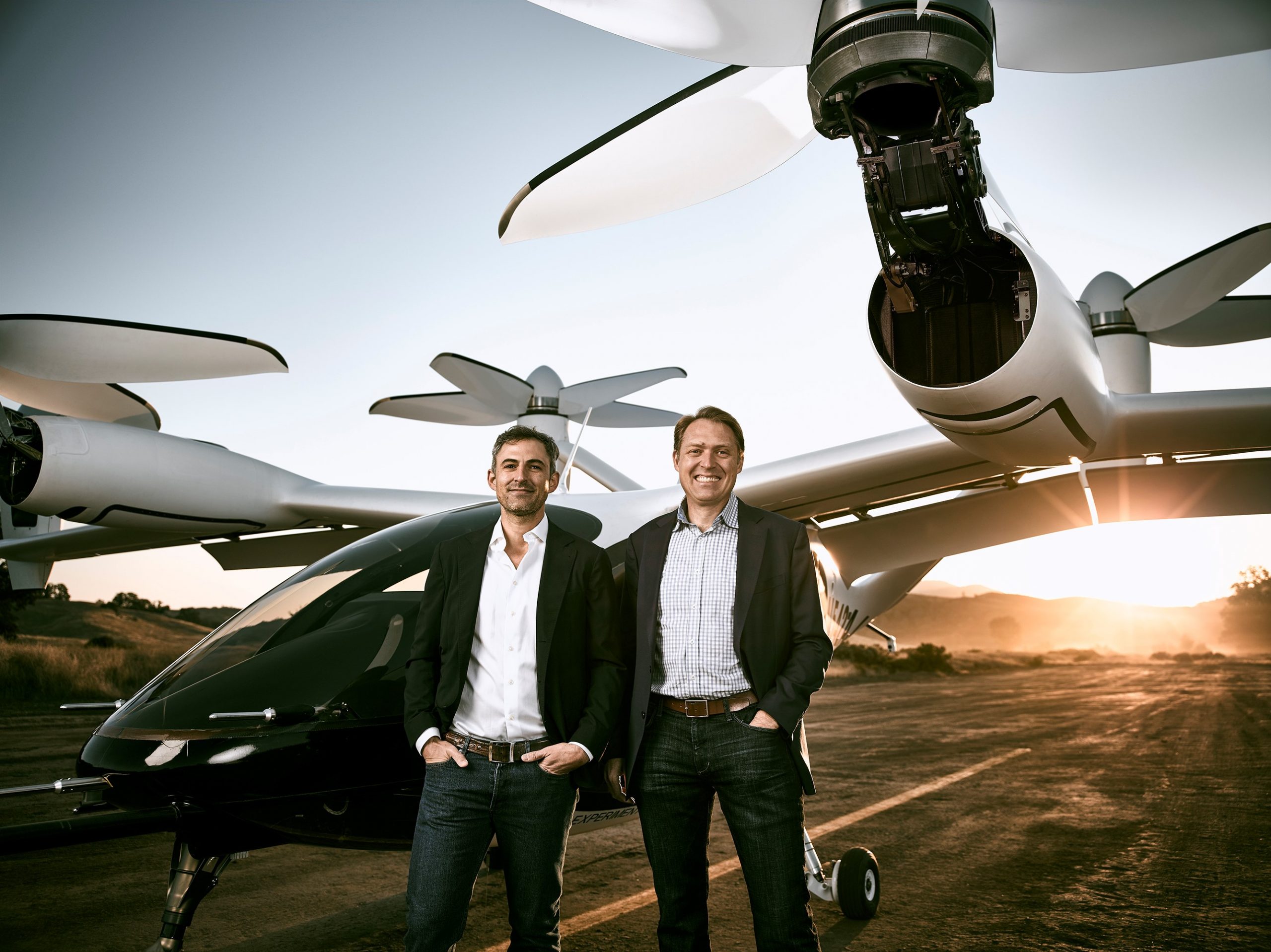
Paul Sciarra & JoeBen Bevirt Joby Aviation
Knowing what we want to invest in clearly also helps us with our speed. So often, especially for smaller ticket investments, we can act surprisingly fast, almost as fast as solo GPs or tier 1 VCs.
Finally, for any but especially globally minded startups, our long-term and patient investment style is a very attractive quality. We do not have to “exit” from a startup in few years. We can work with the founder and build his vision over many years, all the while supporting the company in future rounds. That is not something you can find in typical VCs.
Q: What trends and opportunities are you seeing in the technology sector at the moment?
One of the great things about the technology sector is the speed of change and the unpredictability. There are huge advances in the making that we don’t even know about yet. But in terms of current advances, the big one is AI, and specifically artificial general intelligence (AGI) and super intelligence (ASI). The first businesses to successfully reach these levels could potentially be the most valuable companies ever built as the applications of these technologies will permeate every industry very quickly.
Another big one is battery energy storage systems (BESS) for renewable energy. Our current battery technologies are not enough to solve the intermittency of renewable energies. We expect to see some major innovations in this space and are actively looking at opportunities.
Virtual reality is also making massive advances, and what’s known as the ‘metaverse’. In a decade or two, people will look back at our smartphones and 2D video calls and laugh at how primitive they are. In future, the real and virtual worlds will blend extensively and become the norm in everyday life. We’ll sit across table in a coffee bar and feel like we are in the real world chatting to them. Though sounds a bit science-fictionesque, this kind of technology could take off sooner than anticipated.
Then there are many others that we closely monitor such as like blockchain and its applications in several industries, quantum computing and how it will change coding and cryptocurrencies and decentralized finance. We also expect digital platforms/marketplaces to keep growing and disrupting industries so consumer tech will always continue to surprise us. I could go on! It’s such a fast-moving area, but that’s what makes it so exciting as an investor and work with amazing founders who want to change the world.
Q: Finally, what do you think a tech start-up should be thinking about, if they’re looking to attract the right capital?
I would have to say to make sure that the start-up is focused on addressing a real-world problem, an actual problem that real people or businesses experience in their daily lives. The start-ups that get traction in attracting investors are typically either solving such a problem their founders’ have experienced themselves and that they are passionate about solving; or taking a systematic approach to identifying one, and then how they can solve it. Once the right opportunity is identified, the hard work really starts. But it surely is one of the best timed to start a technology company right now. We are excited to meet future founders.
Related Insights











